The Arab Bank

The Arab Bank, formed in 1930, is a prominent financial institution in the Arab world, with 400 branches and offices in 25 countries, including Cyprus. Its parent company is Arab Bank plc incorporated in Amman, Jordan, where its headquarters are also located. The bank was founded by Abdul Hameed Shoman in Jerusalem during the time of the British mandate. The bank's chairman, Abdul Majid Shoman, died July 6, 2005 at the age of 94. As of 2007, the bank is the subject of a lawsuit because it has compensated the families of suicide bombers.
++
MSNBC article: "Terror ties at a Middle Eastern bank? FBI investigates Arab Bank for allegedly supporting suicide bombers and doing business with suspected terrorists; bank denies charges"
+
By Lisa Myers & the NBC Investigative Unit (Updated: 12:15 p.m. ET May 11, 2005) ~ AMMAN, Jordan, August 2001: A suicide bomber hits the Sbarro pizza parlor in Jerusalem, killing 15 people, including an American — Shoshana Greenbaum, a pregnant schoolteacher.
+
The Palestinian bomber's name was Izz Ad-Din Al-Masri. His parents told NBC News that soon after the bombing a group that helps families of suicide bombers told them they'd be compensated for their son's "sacrifice." "They told me to go to the Arab Bank and open an account, and you will receive a salary," says the bomber's father, Shuhail Ahmed Al-Masri. He says almost immediately, he began receiving $140 a month. And after the Israelis leveled his house, he says he was told to go to the bank and pick up more money — $6,000.
+
Al-Masri's father says he was told to open an account at the Arab Bank branch in the West Bank settlement of Jenin. There, he says he's received money almost every month for the last three years. The branch, plastered with posters eulogizing suicide bombers, isn't the only one allegedly paying bombers' families. An ad in a Palestinian newspaper told dozens of martyrs' families to pick up money at the nearest branch of the Arab Bank. "Those types of payments are aiding and abetting terrorism," says Jimmy Gurule, a former official at the U.S. Treasury Department who was in charge of cutting off money to terrorists.
 The FBI tells NBC News that it's now conducting a criminal investigation into the Arab Bank's alleged movement of funds for suspected terrorists. The investigation was triggered after U.S. regulators examined Arab Bank operations in New York City on Madison Avenue. U.S. officials tell NBC News that regulators found that the bank had 40 to 60 suspected terrorists and groups as customers. They were allegedly associated with al-Qaida, Hamas and Hezbollah. Officials say all had accounts with the bank or had moved money through the New York office. "I'm not aware of another situation involving a bank operating in the U.S. that has conducted itself in such a manner," says Gurule. The Arab Bank, headquartered in Jordan, turned down repeated requests for an interview, so NBC visited bank headquarters in Amman. And only got as far as the lobby.
The FBI tells NBC News that it's now conducting a criminal investigation into the Arab Bank's alleged movement of funds for suspected terrorists. The investigation was triggered after U.S. regulators examined Arab Bank operations in New York City on Madison Avenue. U.S. officials tell NBC News that regulators found that the bank had 40 to 60 suspected terrorists and groups as customers. They were allegedly associated with al-Qaida, Hamas and Hezbollah. Officials say all had accounts with the bank or had moved money through the New York office. "I'm not aware of another situation involving a bank operating in the U.S. that has conducted itself in such a manner," says Gurule. The Arab Bank, headquartered in Jordan, turned down repeated requests for an interview, so NBC visited bank headquarters in Amman. And only got as far as the lobby. +
Lisa Myers: Does the bank support terrorism?
Omar Al-Sheik, Arab Bank official: Of course not.
Myers: Does the bank believe it's proper to move money to help terrorists?
Omar Al-Sheik: Of course not.
+
In a statement, the Arab Bank denies ever knowingly doing business with terrorists. And officials insist the bank has never moved money for anyone officially designated a terrorist by the U.S. government.However, NBC News provided the bank with documents showing it dealt with three Hamas terror groups even after they were blacklisted by the United States. It's against the law for banks in the United States to handle transactions for terrorists on the blacklist. The bank says the three transactions still were legal because they occurred outside the United States but that in the future it will honor the U.S. blacklist worldwide. As for suicide bombers, the Arab Bank strongly denies ever knowingly handling payments for bombers' families. Their statement reads, in part: "Arab Bank considers suicide bombings an abominable human act."
+
Then what about that ad telling bombers' families to collect money at the Arab Bank? The bank says it didn't place the ad. After NBC News provided account numbers for the Al-Masri family, the bank froze the account, which the bank claims was opened before the bombing. Shoshana Greenbaum's father, who moved to Israel after her death, is now suing the bank. "This organization, if allowed to continue with a mere slap on the wrist, would be sending a message that it's perfectly all right to support terrorism," says Alan Hayman. The bank, which Israeli officials call "the Grand Central Station of terrorist financing," has been forced to shut down much of its U.S. operation but remains a dominant player in the Middle East.
+
+ Arab Bank responds to NBC News
+ Manager Sami Makarem: "Welcome to Arab Bank Cyprus"
+ Arab Bank fined $24M for funding Palestinian terror by Avi Krawitz, published in the Jerusalem Post, August 19, 2005
+ http://www.terror-lawsuit.com/ Home page for the class action Litle v. Arab Bank.
+
+ Israeli Terrorism Victims Win Major Victory in Landmark Arab Bank Case:
NEW YORK, Jan. 30, 2007 /PRNewswire-USNewswire/ -- In a stunning victory for more than 1,600 survivors and family members of those killed by terrorism in Israel, U.S. District Judge Nina Gershon issued a major ruling that is expected to lead to a trial for their landmark civil action against Arab Bank.
+
Judge Gershon rejected the bulk of a defense motion to dismiss the case, ruling instead that suicide bombing attacks and other forms of violence directed against civilians in Israel violate customary international law, that "plaintiffs have successfully stated claims for genocide and crimes against humanity," and that plaintiffs have established a cause of action under the Alien Tort Claims Act and the Antiterrorism Act. She found that the plaintiffs had pled sufficient evidence that "Arab Bank's provision of banking services facilitated money laundering and also facilitated the payments from [a Saudi Arabian] Committee to the suicide bombers' beneficiaries," creating "an incentive for suicide bombings."
+
"This is a great victory for everyone -- not just those of us who have had our loved ones savagely murdered in acts of terrorism, but for everyone who loves and wants peace," said Iris Almog Schwartz, an Israeli citizen who lost her mother, father, brother and two nephews in the suicide bombing of Restaurant Maxim in Haifa on October 4, 2003.


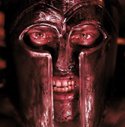


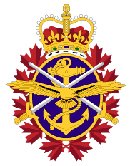





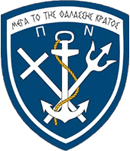

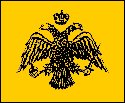






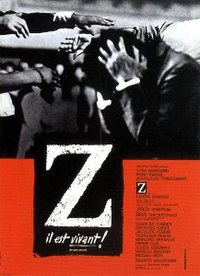
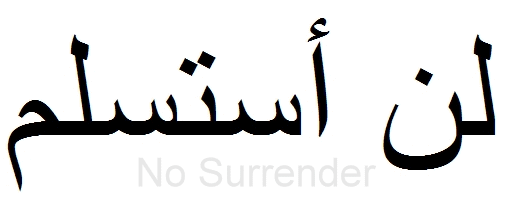

0 Comments:
Post a Comment
<< Home